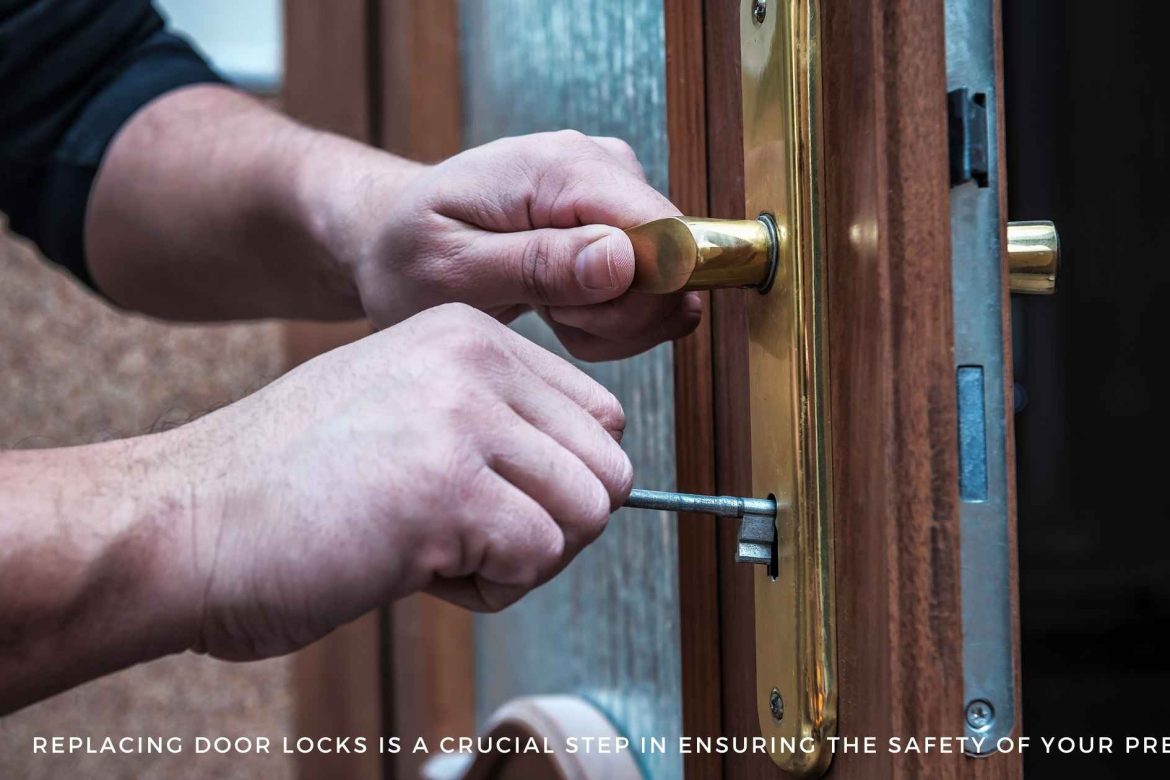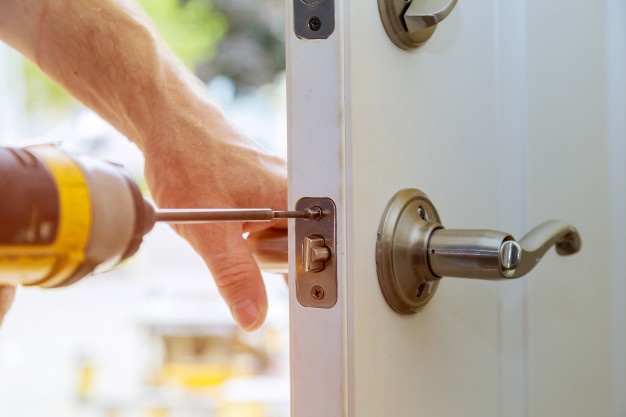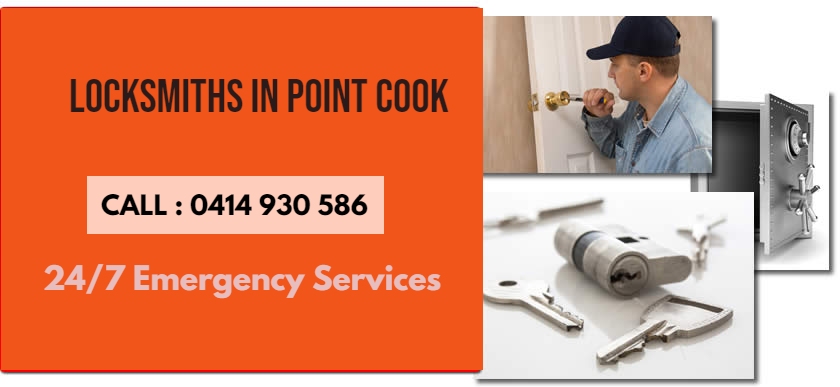Replacing door locks Derrimut is a crucial step in ensuring the safety of your home or Office in Melbourne western Suburb. It may seem like a straightforward task, but it’s important to follow the correct steps and use the right tools to guarantee that the new locks are installed properly. Here’s a simple guide to help you replace your door locks effectively:
Steps to Replace Security Door Locks:
- Assess the Lock Type:
- Determine whether your door uses a keyed entry, a deadbolt, or a keyless entry system.
- Identify if your door is hinged or sliding, as the installation process might vary slightly for each.
- Gather Tools and Materials:
- New lockset or deadbolt
- Screwdriver (usually Phillips head)
- Measuring tape (if needed)
- Drill (if the new lockset requires different holes)
- Replacement screws (if necessary)
- Remove the Old Lock:
- Unscrew the screws that hold the existing lock in place.
- If it’s a deadbolt, you’ll need to remove both the interior and exterior parts of the lock.
- Keep the old screws in case you need them for the new lock.
- Install the New Lock:
- Align the new lock components (e.g., the latch, deadbolt, and strike plate) in the corresponding holes of the door and frame.
- Insert and secure the screws in the appropriate places.
- Tighten them carefully, but avoid over-tightening, as this can damage the lock or door.
- Test the New Lock:
- Ensure that the lock turns smoothly and engages properly.
- Test it both from the inside and outside of the door.
- Check that the door closes securely, and the latch or deadbolt aligns correctly with the strike plate.
- Additional Security Measures (Optional):
- Consider adding a secondary security feature, such as a slide bolt or chain lock, to enhance the overall security of your door.
- Seek Professional Help if Needed:
- If you’re unsure about your ability to replace the lock or if the door has complex hardware, it’s always a good idea to hire a professional locksmith Derrimut.
By replacing your door locks with care and ensuring proper installation, you can maintain the necessary security for your property. Regularly inspect and maintain your locks to ensure they continue to function effectively over time.
Frequently Asked Questions: Why and When Should You Change Your Door Locks?
1. Why should I change my door locks?
Changing your door locks can enhance security and give you peace of mind. Here are the main reasons:
- Lost or Stolen Keys: If you’ve lost your keys or suspect they have been stolen, changing the locks ensures unauthorized individuals cannot gain access.
- Break-ins or Attempted Break-ins: After a break-in or an attempted burglary, changing your locks helps restore your security and prevent further incidents.
- Key Control: If you’ve recently moved into a new home or office, you can never be certain who else might have copies of the keys. Changing the locks guarantees that you control access.
- Wear and Tear: Over time, locks can become worn or damaged, potentially compromising their effectiveness. Replacing old or malfunctioning locks can prevent failure when you need security most.
- Upgrading Security: If your current locks are outdated or too easy to bypass, upgrading to a higher security system (e.g., deadbolts or smart locks) improves overall protection.
2. When should I change my door locks?
There are several key moments when changing your locks is crucial:
- After Moving Into a New Home or Office: You can’t be sure who else has copies of the keys. Replacing locks gives you control over who can access your property.
- After a Break-In or Attempted Break-In: Even if the break-in didn’t result in entry, you should change the locks immediately to ensure the perpetrators cannot return.
- When Keys Are Lost or Stolen: If you’ve misplaced your keys or think they’ve been stolen, it’s essential to change the locks to avoid unauthorized access.
- When Locks Become Damaged or Malfunctioning: If your locks are sticking, jammed, or showing signs of damage, it’s time to replace them to ensure they function properly.
- After Divorce or Tenant Change: If someone has moved out (e.g., an ex-spouse or tenant), it’s a good idea to replace the locks to avoid potential risks of unauthorized entry.
- To Improve Security: If your current locks are outdated or you feel your security is insufficient, upgrading to stronger, more secure locks should be a priority.
3. How often should I change my door locks?
While there is no set timeframe for changing locks, you should inspect your door locks annually for signs of wear or failure. If any of the following apply, you should change your locks sooner:
- Frequent use or damage
- Difficulty turning the key or unlocking the door
- Visible signs of tampering or forced entry
- Loss of key control (e.g., multiple copies given out)
4. What are the signs that my door lock needs to be replaced?
Here are some key indicators that your locks might need replacement:
- Difficulty in Turning the Key: If the key is hard to turn or gets stuck in the lock.
- Loose or Wobbly Locks: If the lock feels loose or has a lot of play in it, it may need to be replaced.
- Visible Wear or Rust: Locks exposed to the elements may rust, corrode, or show physical wear, compromising their integrity.
- Repeated Malfunctions: If you need to jiggle or repeatedly try to unlock the door, it’s a sign that the mechanism is failing.
- Security Concerns: If your lock is outdated or doesn’t meet modern security standards, it’s time to replace it.
5. Can I change the locks myself, or should I hire a professional?
You can change basic door locks yourself if you have the right tools and instructions. However, if you’re dealing with more complex locking systems (e.g., smart locks or commercial-grade locks) or if you’re not confident in your DIY skills, it’s best to hire a professional locksmith to ensure proper installation and security.









